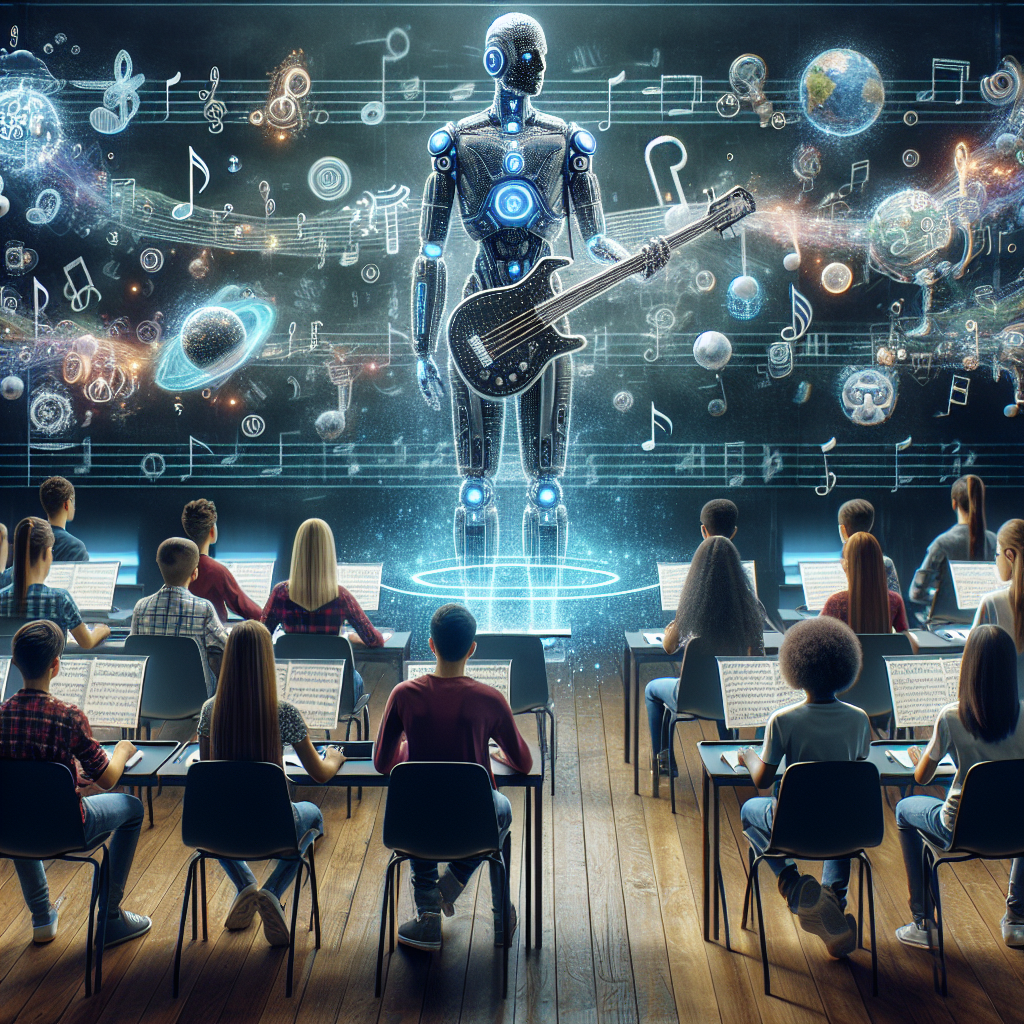The Future of Music Education: How AI is Reshaping Learning
Music education has always been an important part of a well-rounded education. Learning to play an instrument, read music, and understand musical theory has been shown to have numerous benefits for students, including improved cognitive abilities, enhanced creativity, and increased self-confidence. However, as technology continues to advance, the way we teach and learn music is evolving. One of the most exciting developments in music education is the use of artificial intelligence (AI) to enhance the learning experience for students of all ages.
AI is a branch of computer science that focuses on creating machines that can perform tasks that typically require human intelligence, such as learning, reasoning, problem-solving, and perception. In the realm of music education, AI is being used in a variety of ways to help students learn more effectively and efficiently. From virtual music teachers to personalized practice tools, AI is reshaping the way we learn and interact with music.
One of the most popular applications of AI in music education is the development of virtual music teachers. These virtual teachers can provide personalized instruction to students based on their individual learning styles, abilities, and goals. Using data analytics and machine learning algorithms, these virtual teachers can assess a student’s progress, identify areas for improvement, and create customized lesson plans to help the student reach their full potential.
Virtual music teachers can also provide real-time feedback to students as they practice, helping them correct mistakes and improve their technique. This instant feedback can be invaluable for students who are learning to play an instrument or sing, as it can help them make adjustments and improvements in real-time, rather than waiting for feedback from a human teacher.
Another way AI is reshaping music education is through the development of personalized practice tools. These tools use AI algorithms to analyze a student’s playing or singing and provide feedback on their performance. For example, a student learning to play the piano may use a practice tool that listens to their playing and provides feedback on their timing, dynamics, and technique. This feedback can help the student identify areas for improvement and track their progress over time.
In addition to virtual music teachers and personalized practice tools, AI is also being used to create interactive learning experiences for students. For example, some music education apps use AI to create personalized lesson plans, quizzes, and games that help students learn musical concepts in a fun and engaging way. These interactive experiences can help students stay motivated and engaged with their music education, leading to better learning outcomes.
Overall, the use of AI in music education is revolutionizing the way we teach and learn music. By providing personalized instruction, real-time feedback, and interactive learning experiences, AI is helping students of all ages and abilities develop their musical skills and reach their full potential. As technology continues to advance, we can expect to see even more innovations in music education that will further enhance the learning experience for students around the world.
FAQs
Q: How is AI being used in music education?
A: AI is being used in a variety of ways in music education, including virtual music teachers, personalized practice tools, and interactive learning experiences.
Q: How can AI help students learn music more effectively?
A: AI can help students learn music more effectively by providing personalized instruction, real-time feedback, and interactive learning experiences that cater to their individual learning styles and abilities.
Q: Are virtual music teachers as effective as human teachers?
A: While virtual music teachers cannot replace the expertise and guidance of a human teacher, they can provide valuable supplemental instruction and feedback to students as they practice and learn music.
Q: What are some examples of AI-powered music education tools?
A: Examples of AI-powered music education tools include practice tools that analyze a student’s playing or singing and provide feedback, virtual music teachers that create personalized lesson plans, and interactive learning experiences that help students learn musical concepts in a fun and engaging way.

